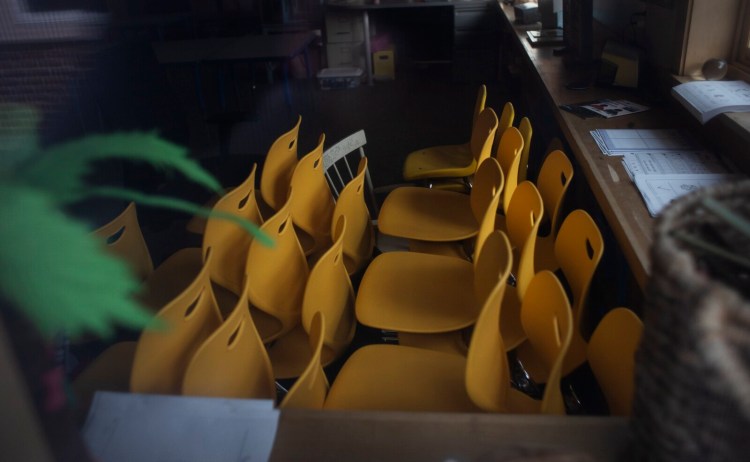Maine’s commissioner of education is recommending that schools across the state plan to continue to replace in-person classroom and group instruction with remote and distance learning programs for the remainder of the 2019-20 school year.
Pender Makin notified Maine school officials of her recommendation on Tuesday, saying she was basing her decision on guidance from the U.S. Centers for Disease Control and Prevention that recommends avoiding large group and in-person instruction for eight to 20 weeks. Makin said her recommendation was made with the support of Gov. Janet Mills.
Makin characterized her “Priority Notice” message, which she addressed to “Champions of Education” as a recommendation. It was not clear what consequences school districts would face if they didn’t comply. If they do, it likely means the end to events such as class proms, graduations and sports programs.
“It is difficult to make such a recommendation, recognizing the profound challenge of re-inventing public education and the many culminating events and rites of passage that educators and students anticipate all year long,” Makin said. “I also realize that this recommendation will be difficult for families to hear, given the challenges of child care and managing school expectations on top of the other significant impacts of this state and national emergency.”
“That said, I believe it is extremely important for school leaders to have as much information as possible in order to best prepare educators, students and communities for a longer period of remote learning and to promote opportunities for redesigned celebrations and alternative ways to provide both continuity and closure,” Makin said.
Makin said her staff will be available to help school districts help plan remote learning programs and school-related events for the remainder of the school year. By late March, most public schools in Maine closed buildings and moved into using remote learning programs that they believed would last through the end of April.
School districts around Maine have continued to wrestle with questions about what a school day will look like, how they can get technology into the hands of their students and whether students should be graded during a lengthy remote learning period.
Makin also said her department has learned that the SAT is not required for college admission at any Maine college or university and may be waived at colleges and universities across the country.
Makin tried to reassure educators that things will get better after the state makes its way through the chaos that COVID-19 has created.
“Unlike the well-defined grief of a definite and specific loss, the nebulous impacts from COVID-19 are disorienting and hard to describe. We’re experiencing the loss of our basic and reliable systems and structures,” Makin wrote. “While the economy, health care and education systems are disrupted, and when the fabric of our social habits and traditions disintegrates into forced isolation, people understandably lose the comfort of predictability and control.”
Send questions/comments to the editors.




